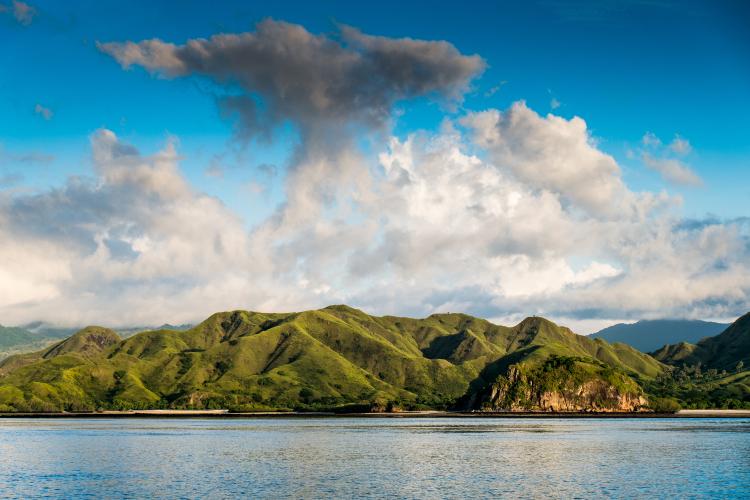Cruise Tourism Development
SOUTH PACIFIC TOURISM ORGANISATION (SPTO)
#SDGAction39978
Description
The partnership will be governed by a series of meetings between CLIA A and SPTO. It is proposed that these be held on a quarterly basis at a mutually convenient location with specific timing to be determined by availability and the timing of relevant conference etc. These meetings will be attended by the respective CEOs of the two organisations together with the relevant executive staff.
Capacity building and knowledge/technology transfer will happen at multiple levels. Most directly, and within the South Pacific, capacity building initiatives will be led by SPTO through regional forums and selected country workshops. The other partnership organisation will support SPTO in these initiatives and provide input and technical expertise.
The partners enter into this partnership while wishing to maintain their own separate and unique missions and mandates, and their own accountabilities. Both partners will bring to each other's attention any major development activities and/or opportunities and to work towards mutually beneficial outcomes in terms of the growth of the cruise tourism sector. Both organisations will share information that is necessary to assist each partner in achieving the purpose and partnership principles, such as, technical reports, minutes of meetings, activity reports. Each partner will accept full and sole responsibility for any and all expenses incurred by itself relating to the partnership. Nothing in the partnership will be construed as superseding or interfering in any way with any agreements or contracts entered into among the partners, either prior to or subsequent to the establishment of this partnership. Furthermore, nothing in this partnership will be construed as an exclusive working relationship. The partners acknowledge that this partnership does not create an obligation to provide funds, nor does it constitute a legally binding commitment by any party or create any rights in any third party. Both partners will amicably settle any unexpected dispute or controversy that may arise out of this arrangement, in accordance with the rules and procedures of both organisations.
CRUISE LINES INTERNATIONAL ASSOCIATION (CLIA A)
SDGS & Targets
Goal 14
Conserve and sustainably use the oceans, seas and marine resources for sustainable development
14.1
By 2025, prevent and significantly reduce marine pollution of all kinds, in particular from land-based activities, including marine debris and nutrient pollution
14.1.1
(a) Index of coastal eutrophication; and (b) plastic debris density
14.2
By 2020, sustainably manage and protect marine and coastal ecosystems to avoid significant adverse impacts, including by strengthening their resilience, and take action for their restoration in order to achieve healthy and productive oceans
14.2.1
Number of countries using ecosystem-based approaches to managing marine areas
14.3
Minimize and address the impacts of ocean acidification, including through enhanced scientific cooperation at all levels
14.3.1
14.4
By 2020, effectively regulate harvesting and end overfishing, illegal, unreported and unregulated fishing and destructive fishing practices and implement science-based management plans, in order to restore fish stocks in the shortest time feasible, at least to levels that can produce maximum sustainable yield as determined by their biological characteristics
14.4.1
14.5
By 2020, conserve at least 10 per cent of coastal and marine areas, consistent with national and international law and based on the best available scientific information
14.5.1
14.6
By 2020, prohibit certain forms of fisheries subsidies which contribute to overcapacity and overfishing, eliminate subsidies that contribute to illegal, unreported and unregulated fishing and refrain from introducing new such subsidies, recognizing that appropriate and effective special and differential treatment for developing and least developed countries should be an integral part of the World Trade Organization fisheries subsidies negotiation
14.6.1
Degree of implementation of international instruments aiming to combat illegal, unreported and unregulated fishing
14.7
By 2030, increase the economic benefits to Small Island developing States and least developed countries from the sustainable use of marine resources, including through sustainable management of fisheries, aquaculture and tourism
14.7.1
Sustainable fisheries as a proportion of GDP in small island developing States, least developed countries and all countries
14.a
Increase scientific knowledge, develop research capacity and transfer marine technology, taking into account the Intergovernmental Oceanographic Commission Criteria and Guidelines on the Transfer of Marine Technology, in order to improve ocean health and to enhance the contribution of marine biodiversity to the development of developing countries, in particular small island developing States and least developed countries
14.a.1
14.b
Provide access for small-scale artisanal fishers to marine resources and markets
14.b.1
Degree of application of a legal/regulatory/policy/institutional framework which recognizes and protects access rights for small‐scale fisheries
14.c
Enhance the conservation and sustainable use of oceans and their resources by implementing international law as reflected in United Nations Convention on the Law of the Sea, which provides the legal framework for the conservation and sustainable use of oceans and their resources, as recalled in paragraph 158 of "The future we want"
14.c.1
Number of countries making progress in ratifying, accepting and implementing through legal, policy and institutional frameworks, ocean-related instruments that implement international law, as reflected in the United Nations Convention on the Law of the Sea, for the conservation and sustainable use of the oceans and their resources
SDG 14 targets covered
Deliverables & Timeline
Resources mobilized
Partnership Progress

Feedback
Action Network

Timeline
Entity
SDGs
Region
- Asia and Pacific
Geographical coverage
More information
Countries
Contact Information
Mr. Ilisoni Vuidreketi, Chief Executive Officer

